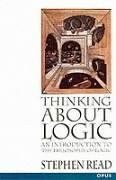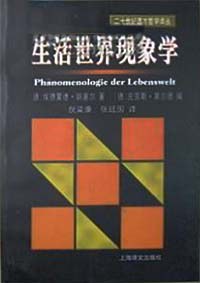

具体描述
Logic deals with the inevitable - those consequences which follow inescapably from a given set of premisses. This fact has caused it to be seen as different from other more self-questioning branches of philosophy. In this book, Stephen Read sets out to rescue logic from its undeserved reputation as an inflexible, dogmatic discipline by demonstrating that its technicalities and processes are founded on assumptions which are themselves amenable to philosophical investigation. He examines the fundamental principles of consequence, logical truth and correct inference within the context of logic, and shows that the principles by which we delineate consequences are themselves not guaranteed free from error. Central to the notion of truth is the beguiling issue of paradox. Its philosophical value, Read shows, lies in exposing the invalid assumption on which the paradox is built. Thinking About Logic also discusses logical puzzles which introduce questions relating to language, the world, and their relationship. While formal logic often employs its own esoteric language, the achievement of this book is to focus on those issues which raise exciting philosophical questions, and to make them intelligible to readers with no previous knowledge of logic.
作者简介
目录信息
读后感
评分
评分
评分
评分
用户评价
《Thinking About Logic》为我提供了一个全新的视角来理解“论证”本身。我曾以为论证只是为了说服他人,但这本书让我意识到,论证更重要的是一个自我检验和自我完善的过程。作者在书中对“论证的有效性”和“论证的可靠性”的区分,以及如何构建一个强有力的论证,都让我对“说服”有了更深刻的理解。它不再是简单的言辞技巧,而是建立在清晰的逻辑基础之上。我开始关注自己与他人的论证过程,去分析其中是否存在逻辑上的缺陷,去思考如何让自己的观点更加令人信服,同时也更能包容不同的声音。这本书让我看到了,逻辑的力量在于其透明度和可检验性,一个好的论证,能够经受住最严密的审视。
评分阅读《Thinking About Logic》的过程,如同一次深入的哲学之旅。它不仅仅教授逻辑的规则,更引导我们思考逻辑在人类认识论中的地位,以及它如何影响我们对真理的追求。作者通过对不同哲学流派中逻辑观点的梳理,展现了逻辑思想的丰富性和多样性。我尤其喜欢书中关于“真理与有效性”的讨论,它让我意识到,一个逻辑上有效的论证,其结论未必是真实的,而一个真实的结论,也未必是通过合乎逻辑的推理得出的。这种区分,对于我们辨别信息、做出判断至关重要。这本书激发了我对知识本质的思考,以及我们如何通过逻辑来接近真理。它让我看到,逻辑是人类探索未知世界的重要伙伴。
评分《Thinking About Logic》的阅读过程,是一次对自身思维惯性的挑战。作者并没有直接告诉我们“应该怎么想”,而是通过引导我们去审视“我们是如何思考的”,来达到启迪的目的。我常常在阅读过程中,发现自己不自觉地陷入了某些思维陷阱,而书中的例子恰好指出了这些问题所在。书中对“认知偏差”和“逻辑谬误”的结合分析,是我认为最有价值的部分。它让我们不仅能识别他人的逻辑错误,更能审视自己思维中的盲点。例如,关于“确认偏误”的讨论,让我意识到自己可能在不经意间,只关注支持自己观点的证据,而忽略了反驳的证据。这种自我认知上的突破,是这本书带给我的最宝贵的财富。它鼓励我们保持谦逊和开放的心态,不断修正和完善自己的思维方式,这是一种持续终生的学习过程。
评分《Thinking About Logic》带给我最大的感受,是一种对思维的全新掌控感。它不仅仅是知识的灌输,更是一种能力的培养。我发现自己在阅读完这本书后,对于信息的过滤和筛选能力有了显著提升,更能快速辨别出信息中的关键点和潜在的逻辑漏洞。作者在书中提供的各种分析框架和思考工具,让我能够系统性地解决问题,而不是凭感觉或经验。我开始尝试将这些工具应用到工作和生活的各个方面,从项目规划到人际关系处理,都从中受益匪浅。这本书让我明白,逻辑并非是天赋,而是一种可以通过学习和实践获得的技能,它能够极大地提升我们的决策质量和生活效率。我不再是被动地接受信息,而是能够主动地去驾驭和运用思维的力量。
评分《Thinking About Logic》带给我的,是一种深刻的自我反思和对沟通方式的重塑。我一直以为自己善于沟通,但读完这本书,我才意识到许多时候,我的表达方式可能存在逻辑上的漏洞,导致了误解和冲突。作者在书中对“清晰表达”的强调,以及如何避免模糊和歧义的技巧,让我受益匪浅。我开始尝试在与人交流时,更有意识地去组织我的思路,去确保我的论证过程是严谨且易于理解的。书中关于“语用学”和“逻辑”之间关系的讨论,尤其令我印象深刻。它让我明白,语言不仅仅是传递信息的载体,更是影响思维和决策的重要因素。我开始关注说话的语境,关注听者可能的解读,努力让我的话语更具说服力,也更少引起不必要的争执。这本书不仅仅是关于逻辑的知识,更是关于如何更好地与他人建立联系,如何更有效地进行思想交流的指南。它让我意识到,真正的逻辑智慧,体现在将复杂的思想清晰而准确地传达出去的能力。
评分这本书的独特之处在于,它将逻辑与人类的创造力和想象力紧密结合,展现了逻辑并非只能产生僵化的结论,而是能够激发无限可能。我原以为逻辑是分析和分解的工具,但《Thinking About Logic》让我看到了逻辑在构建和组合中的巨大能量。作者在书中对“模式识别”和“类比推理”的深入剖析,让我认识到,很多伟大的发明和艺术作品,都离不开对事物之间相似性和关联性的敏锐捕捉。这种将抽象逻辑转化为具体创造力的过程,让我感到无比兴奋。我开始尝试在日常生活中,去寻找不同事物之间的联系,去思考如何将已有的知识和经验进行重组,以产生新的想法。这本书让我看到了,逻辑不仅仅是解决问题的方法,更是激发创新灵感的源泉。
评分这本书的阅读体验,与其说是在学习,不如说是一种智力上的探险。作者以一种极具吸引力的方式,将我们带入了一个充满逻辑挑战的世界。《Thinking About Logic》不仅仅是对逻辑理论的陈述,更是对逻辑在现实世界中应用场景的深入挖掘。书中的案例,从日常的广告宣传到科学研究的进展,再到法律判决的推理,都展现了逻辑无处不在的力量。我特别喜欢书中对“反事实推理”的探讨,它让我意识到,对“如果…那么…”的假设性思考,是推动进步和创新不可或缺的一部分。这让我开始思考,我们是否足够重视对各种可能性进行探索,是否足够勇敢地去挑战已有的假设。这种阅读让我感到自己的思维边界在不断拓宽,对世界的理解也在不断深化。它让我看到了,逻辑不仅仅是分析已有的事实,更是创造和预见未来的重要工具。
评分《Thinking About Logic》给我带来的最大震撼,并非其理论的严谨性,而是它所揭示的逻辑在人类认知和文化发展中的基础性作用。作者以一种宏大的视角,将逻辑的演变与人类文明的进程巧妙地联系起来,让我看到了逻辑如何从最初的哲学思辨,逐渐渗透到科学、数学、甚至艺术和语言之中。书中对亚里士多德逻辑的介绍,不仅仅是对历史的回顾,更是对思维模式早期构建的深刻洞察。它让我们理解,我们如今习以为常的推理方式,是如何经过漫长的演化才形成的。我特别喜欢书中对“因果关系”的探讨,它不仅仅局限于科学实验的层面,还延伸到了历史事件的分析和个人行为的解读。作者并没有给出“标准答案”,而是鼓励读者在不同的语境下,去审视和评估因果链条的有效性。这种开放式的引导,激发了我独立思考的欲望。我开始反思自己过去的许多判断,是不是过于简单化了原因和结果,是不是忽略了更深层次的联系。这本书像一把钥匙,打开了我认识世界的新维度,让我看到了隐藏在表象之下的秩序和结构。
评分这本书的魅力在于它以一种极其生动且不失学术性的方式,揭示了逻辑的“艺术”一面。我原以为逻辑是冰冷而枯燥的,但《Thinking About Logic》彻底颠覆了我的认知。作者通过精妙的语言和丰富的想象力,将抽象的逻辑概念转化为可感知、可体验的事物。书中的一些比喻和类比,比如将逻辑比作建筑的骨架,将推理比作解谜的过程,都让我对逻辑产生了全新的认识。它不再是束缚思维的枷锁,而是解放思维的工具。我尤其欣赏作者对“归纳与演绎”的阐释,它不仅仅是两种推理方法的介绍,更是对人类认识世界两种基本途径的深刻剖析。通过书中的例子,我能够清晰地看到,我们是如何从零散的观察中构建出普遍的规律,又如何用这些规律去预测和解释新的现象。这是一种既充满创造力又充满严谨性的过程。读完这本书,我感觉自己不再害怕面对复杂的逻辑问题,反而跃跃欲试,想要去运用这些工具去分析和解决问题。
评分终于有幸拜读了《Thinking About Logic》,这本书与其说是阐述逻辑本身,不如说更像是一次与思维的深度对话。它没有提供一套僵硬的公式或晦涩的术语,而是通过一系列引人入胜的案例和故事,引导读者去探索逻辑的本质。我尤其欣赏作者对于“为什么”的追问,它鼓励我们不满足于表面的答案,而是深入挖掘事物之间的关联和原因。书中对日常生活中逻辑谬误的剖析,让我茅塞顿开,曾经那些让我困惑不解的争论和误会,瞬间有了清晰的脉络。例如,书中关于“滑坡谬误”的例子,生动地展示了如何通过一系列看似合理的推导,最终导出一个荒谬的结论。这不仅仅是一个理论上的概念,更是我们在信息爆炸时代需要具备的批判性思维的基石。读完后,我感觉自己的大脑被重新梳理了一遍,看待问题的方式更加清晰,更能辨别信息中的真伪。这本书的价值在于它激活了我们内在的逻辑能力,让我们不再被动接受信息,而是主动地去分析、去构建。它让我意识到,逻辑并非只属于哲学家或数学家,而是贯穿于我们生活的方方面面,从最简单的沟通到最复杂的决策,都离不开逻辑的指引。
评分 评分 评分 评分 评分相关图书
本站所有内容均为互联网搜索引擎提供的公开搜索信息,本站不存储任何数据与内容,任何内容与数据均与本站无关,如有需要请联系相关搜索引擎包括但不限于百度,google,bing,sogou 等
© 2026 book.wenda123.org All Rights Reserved. 图书目录大全 版权所有




















